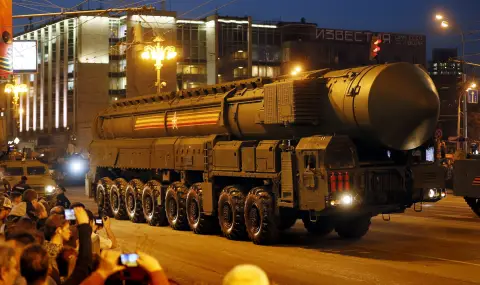Over the past year, the demand for specialists in the production of tanks, artillery, explosives and other production – all this because of the war that Russia has been waging against Ukraine for the third year now.
The frames are not enough – because of mobilization, mass emigration and departure to the front under contract. In these conditions, enterprises from the Russian military-industrial complex lure new workers with various preferences, including high wages and a “guarantee” that they will not end up at the front in Ukraine. But in practice, promises do not always match reality.
Russia cannot solve the problem of the shortage of personnel
In Russia's budget for 2025, a huge sum has been earmarked for military purposes – 13.5 trillion rubles, which is 6.31% of GDP. The Russian authorities are pouring money into the military industry, but in order to increase production, free labor must be found, economist Nataliya Zubarevich told DV.
According to her, more than two million people are currently employed in the field of the Russian military industry. But she clarifies: what President Putin proudly calls “the historically low level of unemployment for the last 15-20 years” it is actually accompanied by an unprecedented staffing shortage in various other areas – in practice “free labor” is over.
For this reason, as the expert explains, enterprises in all industries try to attract personnel with higher salaries. According to the data of the Ministry of Trade, the growth of wages in the military industry in two years has reached 30-60 percent. However, Zubarevich points out that due to the policy of the Russian authorities, this situation creates many imbalances for which “the economy will sooner or later punish”.
How they lure workers in the Military Industry
Studies by DV show that in the job advertisements, some employers promise a lot of social guarantees and various bonuses in order to attract new employees. In the plant “Yakov Sverdlov“ in the city of Dzerzhinsk, which produces defense products and explosives, offers, for example, high wages with indexation, secure protection from mobilization, as well as transport home after evening shifts. But – as workers comment – not infrequently deductions are made from their salaries due to remarks on the quality of their work, and the workload for the same salary is different.
From the rocket and space corporation “Energy” in the Moscow Region, there are also complaints related to the promised high salaries. The situation is the same at the N9 plant in Yekaterinburg, where artillery shells are produced. The pay can be relatively high, but only if one really puts in a lot of overtime, a comment on social networks noted. Another worker at the same factory wrote that the job advertisement indicated one salary, but the actual salary was a quarter lower.
The material and technical equipment is not up to par
At the Kurganmash plant, which produces combat vehicles for the infantry, workers complain not only about low wages, but also about outdated equipment. In their posts, employees at this plant mention technology from the 1960s, a six-day work week and a salary of 42-46,000 rubles – that is, about BGN 800 to 900. Otherwise, the promised salaries are around BGN 1,400.
Problems with the equipment are also complained about in the rocket and space corporation "Energy", and an associate of the enterprise "Energomash" in Petersburg, it is written that the equipment is so worn out that a large part of the plant's production is "hanging by a thread".
"I don't read the news": what the workers in the Defense Ministry say
Last year, salaries at the engineering enterprise "Energomash" have grown, one of the workers there told DV. This year, however, they removed the premiums due to an increase in the staff. “We were told that the urgent orders are over”, explains the worker, who adds that this enterprise can count on “insurance” against a possible new mobilization.
The worker says he prefers not to think about the war in Ukraine – it affected him “only in part”. And he didn't read the news. He doesn't want to change his workplace because he has been working in this company for a long time and is paying off the mortgage.
Another DV interlocutor, who works in a military enterprise for the production of microelectronics, told about the two-fold increase in wages after the beginning of the Russian war against Ukraine. According to him, if at the beginning of 2022 they paid 60,000 rubles per month, then at the end of 2024 - 130,000 rubles were already taken. But he notes that due to the rising cost of living in Russia, his well-being hasn't changed much since then.
Author: Alexey Strelnikov
